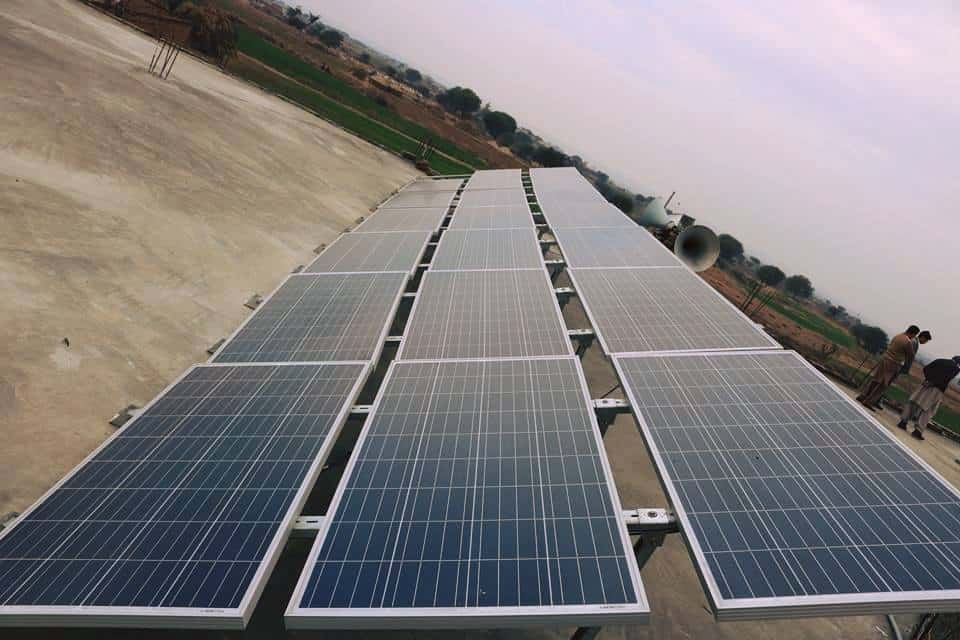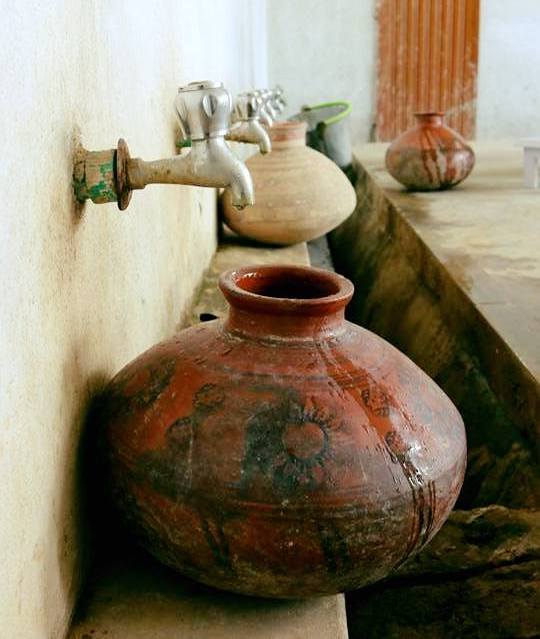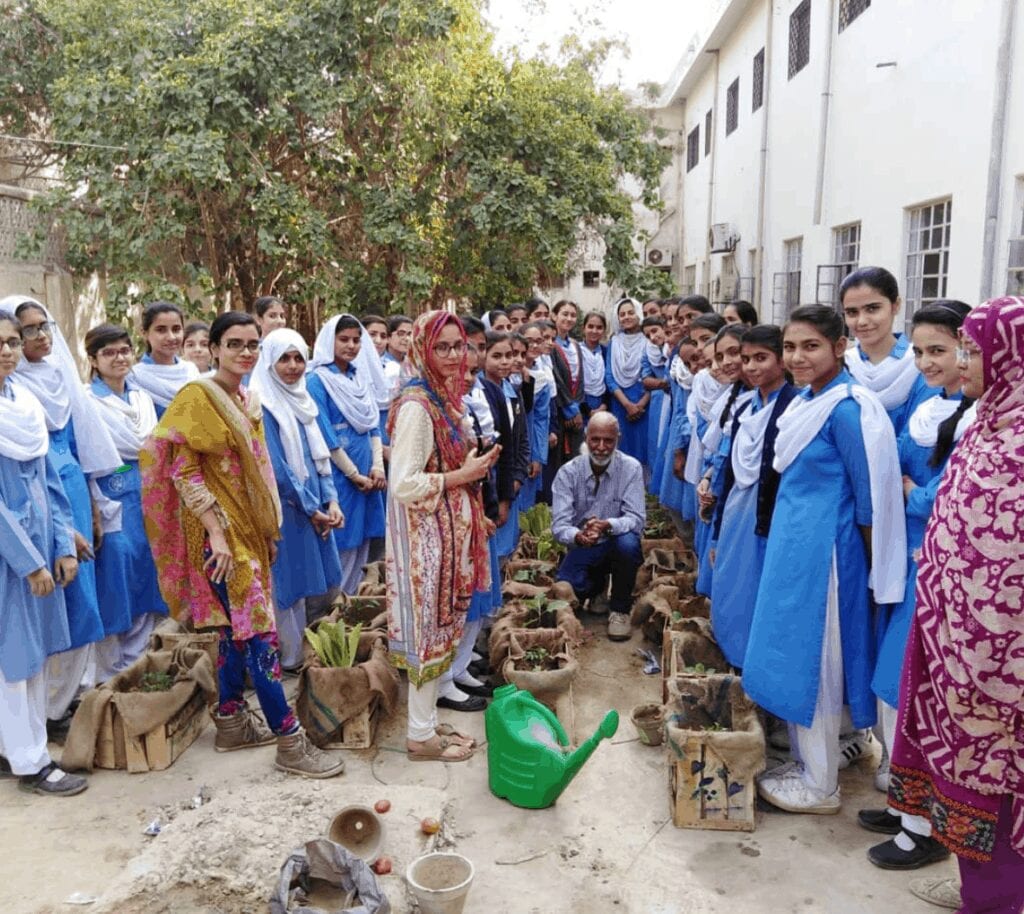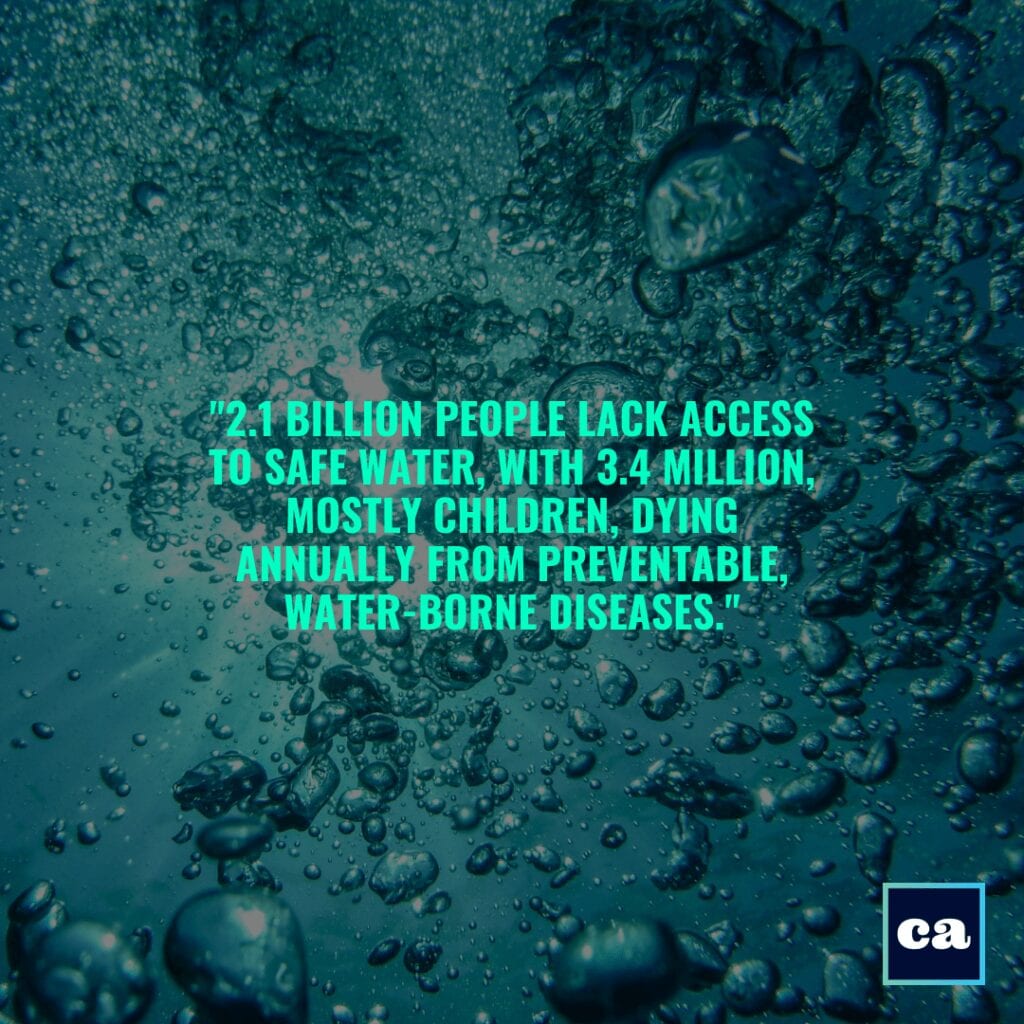3 out of 10 people around the world – or 2.1 billion people lack access to safe water, with 3.4 million, mostly children, dying annually from preventable, water-borne diseases. To tackle the global water crisis, Hamza Farrukh founded the non-profit Bondh E Shams in 2014 to develop a portable, solar-powered water extraction and filtration system.
What? Bondh E Shams uses solar energy to power water pumps that tap into deep underground aquifers in rural communities, removing the need for locals to travel long distances to access water for drinking and household chores. The resulting solution is a 10 foot-long metal box that combines solar technology and smart electro-mechanics to provide a long-lasting and reliable source of clean water for distant communities.
Why? Farrukh was 9 years old when he contracted typhoid in his village due to a contaminated water source. 15 years later as a junior at Williams College, he won the $10,000 Davis Projects for Peace Prize and developed a cost-effective and mobile solar water extraction system. Today, Bondh E Shams – which translates as droplets of the sun – has transformed from an idea to a global team of over 100 volunteers across 3 continents.
“It’s renewable, it’s sustainable, and it’s very cost-efficient. Each pump is providing upwards of 20 years of safe water once we set it up, and only costs around $10,000. If you break it down, for every $100, you’re providing 40,000 cups of water every year,” Farrukh says.



“As a comparison, that’s 3,567 times cheaper than providing bottled water over the same 25-year horizon, not to mention the added benefit of reducing plastic waste and the inefficiencies that come with transporting bottled water.” Traditionally, charities used to provide drinking water to underprivileged communities by dropping shipments of bottled water that’s costly and also harmful to the environment.
Impact: Bondh E Shams is currently serving people across 13 remote Pakistani villages, and has contributed to a documented 25% reduction in cases of waterborne diseases and a 17% improvement in literacy rates. If not for the innovative water extraction system, young girls and boys would walk 4 hours every morning to collect water from distant wells, often preventing them from attending school.

Bondh E Shams also engages local civic leaders in project implementation and encourages women to form and lead a “caretaking council” to help them reverse biased gender norms ubiquitous in their communities.
The non-profit has developed a highly portable solar water system that can be shipped anywhere in the world, making it ideal for inaccessible and high-need areas such as refugee camps. Bond E Shams has recently won $150,000 from Goldman Sachs Gives and is currently planning to deploy its water extraction system on the Bangladesh-Myanmar border to support the 50,000 Rohingya refugees who are facing an acute shortage of water.
Similarly, the charity is in conversation with partners in South Sudan to bring their portable water technology to the water-stressed rural parts of the country.
The long-term vision for Farrukh is to reach every single one of the 2.1 billion people who are currently devoid of safe water.
Listen to Causeartist podcasts here.
Latest Stories
- What are Plant Based Fibers
- 7 Sustainable and Eco Friendly Floss Options
- Anshul Magotra: How Social Innovation Circle Supports Impact Entrepreneurs
- Causeartist Brief – U.S. Department of Energy x Google, Bezos Centers for Sustainable Protein, Oregon Biochar Solutions
- Evidencity: Pioneering the Fight Against Modern Slavery Through Tech








